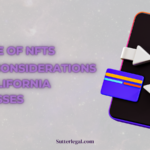Table of Contents
- Q1: What constitutes our responsibilities under the California Employee Literacy Education Assistance Act?
- Q2: What about the privacy of the employees?
- Q3: Can an employee be discharged for disclosing that they’re illiterate?
- Q4: How is the California Private Attorneys General Act Related to Employer Assistance?
- Q5: How can businesses avoid legal pitfalls?
- Assistance for employees and employers: Answering your questions
By nature, laws are complex, especially in the state of California, where the legislature continually enacts and revises labor laws. As an experienced business law firm, Sutter Law, located in San Francisco, strives to navigate these complexities and keeps you apprised of your company’s duties and rights under these regulations.
This article answers some frequently asked questions about California’s Employer Assistance.
The California Department of Industrial Relations is a one-stop shop for all of your “Employer Guideline” needs.
We have compiled some basic FAQs from this source to speed up your search.
Have fun!
Q1: What constitutes our responsibilities under the California Employee Literacy Education Assistance Act?
California Labor Code’s Literacy Act mandates that private employers, with a minimum of 25 employees, must reasonably accommodate and assist employees who disclose their illiteracy and ask for help in enrolling in adult literacy education programs. This assistance could entail providing information about local literacy programs or arranging for literacy education providers to visit the worksite. However, the employer is not obligated to provide paid time off for enrolling or participating in such a program.
Q2: What about the privacy of the employees?
The law requires the employer to take all reasonable measures to maintain the confidentiality of the employee with regard to his illiteracy. Therefore, it is integral to take steps to preserve their privacy.
Q3: Can an employee be discharged for disclosing that they’re illiterate?
The law forbids employers from terminating an employee for revealing illiteracy. As an employer, it’s your duty to familiarize yourself with such provisions to ensure your practices are lawful.
Q4: How is the California Private Attorneys General Act Related to Employer Assistance?
In the early 2000s, California, realizing that there was a scarcity of state investigators and attorneys to probe possible workplace law violations, passed the Private Attorneys General Act. This law empowers workers to sue employers on the state’s behalf for penalties. Therefore, businesses should uphold proper practices to avoid penal proceedings under this law.
Q5: How can businesses avoid legal pitfalls?
By staying informed, being proactive in attending to employee needs, and periodically reviewing your company policies with the help of a professional legal team like Sutter Law. We ensure your procedures align with the ongoing changes in California law.
Assistance for employees and employers: Answering your questions
The landscape of California employer laws is intricate, but we at Sutter Law aim to make it navigable for you. Rest assured, we’re committed to providing your business with the insight and advice needed to foster legal integrity and a conducive working environment. find Employee Law and compliance service.
Employment Relationship – Family Members/Minors
Paydays, Pay Periods, and Final Wages
In order to offer you as much information as possible, the DLSE website contains several sources for assistance.
We recommend that you access basic information provided in our general information lines.
Please also check other links to information provided on this site, such as Publications and Forms which contain information sheets and brochures on many subject matters that are often the topic of questions, and the How To File Claim sections. In most cases, you will find an answer to your question or email dlse2@dir.ca.gov. If, after reviewing all the information offered at these links, you still can’t find the answer to your question regarding wage, hour, and labor law, please email us at hello@sutterlegal.com






